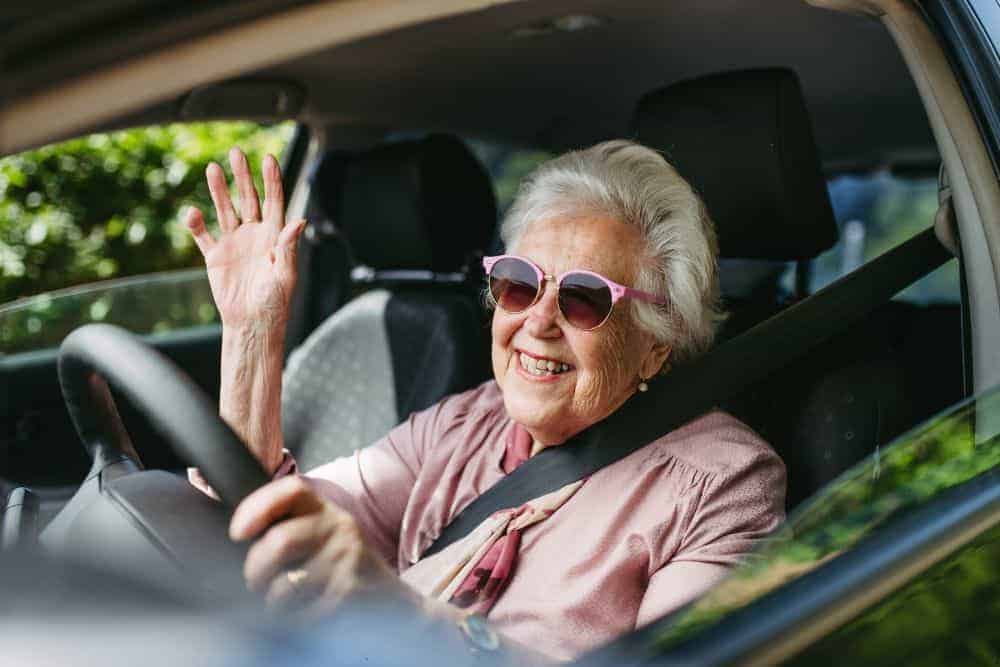
Helping older adults maintain their independence is one of the most important things caregivers and family members can do to enhance their quality of life. The ability to make decisions, perform daily activities, and remain active fosters a sense of control and dignity.
As we age, certain challenges may arise, making it hard to stay independent. However, with the right strategies, tools, and professional support, seniors can continue to live independently for as long as possible.
Here, we’ll discuss the importance of independence for seniors and provide actionable tips for caregivers and families. By the end of this article, you’ll know exactly how to help your loved one thrive—and why professional services, such as those offered by Amy’s Eden Senior Care, play a vital role in maintaining independence.
What Does Elderly Independence Mean?
Elderly independence refers to an older adult’s ability to maintain control over their daily life, make decisions, and perform essential tasks with minimal reliance on others.
It’s about empowering seniors to live with dignity, confidence, and autonomy, whether they are at home, in a care facility, or receiving professional support.
Independence for seniors is not only about physical capabilities but also cuts across emotional, social, and cognitive aspects of life.
Maintaining Control Over Daily Decisions
At its core, elderly independence means allowing older adults to have a say in their lives, from small daily choices to larger, life-impacting decisions.
Examples of decision-making:
- Choosing what to eat, wear, or how to spend their day.
- Deciding when and how to seek assistance for specific tasks.
This sense of control fosters self-confidence and reinforces their ability to manage their affairs.
Balancing Assistance with Autonomy
While some seniors may need help with certain activities, maintaining independence means striking a balance between support and self-reliance.
What this balance looks like:
- Using adaptive tools or modifications to complete tasks independently.
- Receiving occasional help from family or caregivers without undermining their ability to perform what they can manage.
Elderly independence is about creating an environment where seniors feel supported but not overly dependent, ensuring they retain their sense of purpose and individuality.
Why Independence Matters for Older Adults
Independence plays a vital role in the lives of older adults. It goes beyond just being able to perform daily activities—it affects their physical health, mental well-being, and overall quality of life.
Supporting elderly independence helps older adults feel confident, connected, and empowered.
Enhances Physical Health
Remaining independent encourages seniors to stay active, which is essential for maintaining strength, balance, and mobility. Physical activity helps reduce the risk of falls, one of the leading causes of injuries among older adults.

It supports overall health by:
- Promoting cardiovascular health through activities like walking or gardening.
- Keeping muscles strong, helping with daily tasks like cooking and cleaning.
Boosts Emotional Well-Being
Independence gives older adults a sense of control over their lives, which reduces feelings of helplessness and depression. Research shows that seniors with a greater sense of independence experienced fewer mental health challenges.
Independence;
- Builds self-confidence and self-worth.
- Reduces anxiety by giving seniors a sense of stability and routine.
Strengthens Cognitive Health
Staying independent often requires problem-solving and decision-making, which can keep the brain sharp.
Independent activities that help include:
- Managing personal finances or medications.
- Planning meals and grocery shopping.
- Learning a new skill or hobby
- Playing strategy games or puzzles
- Taking educational classes or workshops
Research shows that maintaining mental engagement through daily activities can slow cognitive decline and promote long-term brain health.
Supports Social Connections
Independence allows older adults to maintain an active social life, which is essential for their emotional and physical well-being. Isolation can lead to feelings of loneliness, which may increase the risk of depression and even physical health issues.
A healthy social life can include:
- Participating in community activities or clubs.
- Visiting friends and family or attending social events.
Promotes a Sense of Purpose
Independence allows older adults to pursue hobbies, contribute to their community, and take part in meaningful activities. This sense of purpose can greatly enhance their quality of life.
Examples of purposeful activities:
- Volunteering for local organizations.
- Caring for pets or a small garden.
Reduces the Need for Long-Term Care
When seniors remain independent, they can often delay or avoid the need for intensive care in residential facilities. This not only benefits the individual but can also ease financial and emotional burdens on their families.
Factors That Can Affect Elderly Independence
Maintaining independence in later years can be influenced by a range of physical, emotional, and environmental factors. Understanding these factors is crucial for family members and caregivers to provide the right support while helping loved ones live independently for as long as possible.
Below are some key factors that can impact elderly independence.
Physical Health Conditions
As people age, they may face chronic health conditions that can affect their ability to perform daily activities. These conditions can range from mild inconveniences to more severe impairments that require assistance.
Common health issues include:
- Arthritis: This condition can make it difficult to move joints, which affects mobility and daily activities like dressing or cooking.
- Heart disease: It may limit energy levels, making it challenging for seniors to stay physically active.
- Chronic pain: Conditions like fibromyalgia or back pain can decrease the ability to stand, walk, or do household chores.
- Vision and hearing impairments: Diminished eyesight and hearing can limit communication and the ability to navigate the environment safely.
Cognitive Health Decline
Cognitive decline, including conditions like dementia and Alzheimer’s disease, can significantly impact a senior’s independence.
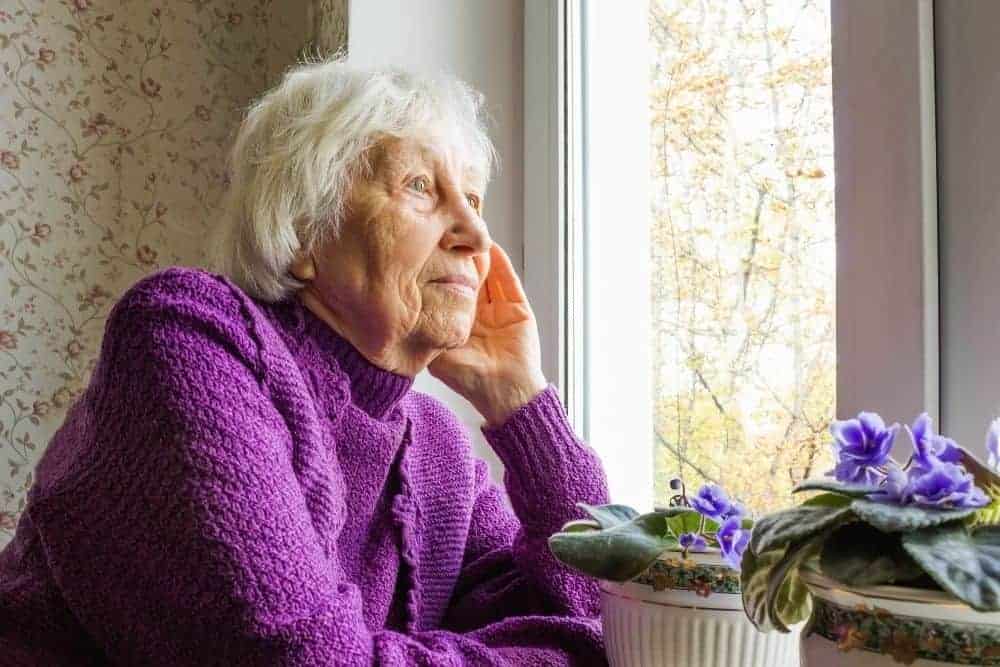
Memory loss, confusion, and difficulty with decision-making can make it hard for them to live on their own or manage tasks without assistance.
How cognitive decline affects independence:
- Seniors with dementia may forget important details, such as medications or appointments, or may struggle to navigate familiar environments.
- It can lead to difficulty maintaining a routine, which is essential for day-to-day living.
- Forgetting how to perform basic tasks like cooking or cleaning can cause frustration and safety concerns.
Mental Health Factors
Mental health plays a critical role in a senior’s ability to maintain independence. Depression, anxiety, or feelings of loneliness can limit motivation and interest in performing daily activities, which can hurt their quality of life and self-sufficiency.
How mental health affects independence:
- Depression: This can cause a lack of energy, poor sleep, and disinterest in taking care of oneself. Seniors may struggle with simple tasks like bathing or dressing.
- Anxiety: Excessive worry can lead to avoidance of certain activities, making it hard to maintain a social life or stay active.
- Loneliness and isolation: Older adults who feel disconnected from family or friends may experience a decline in mental health, further affecting their ability to live independently.
Mobility and Physical Functioning
Mobility issues are one of the most common challenges affecting elderly independence. As we, muscles weaken, and joints stiffen, which can lead to difficulty walking, standing, or climbing stairs. These mobility issues can create safety risks, such as falls or accidents.
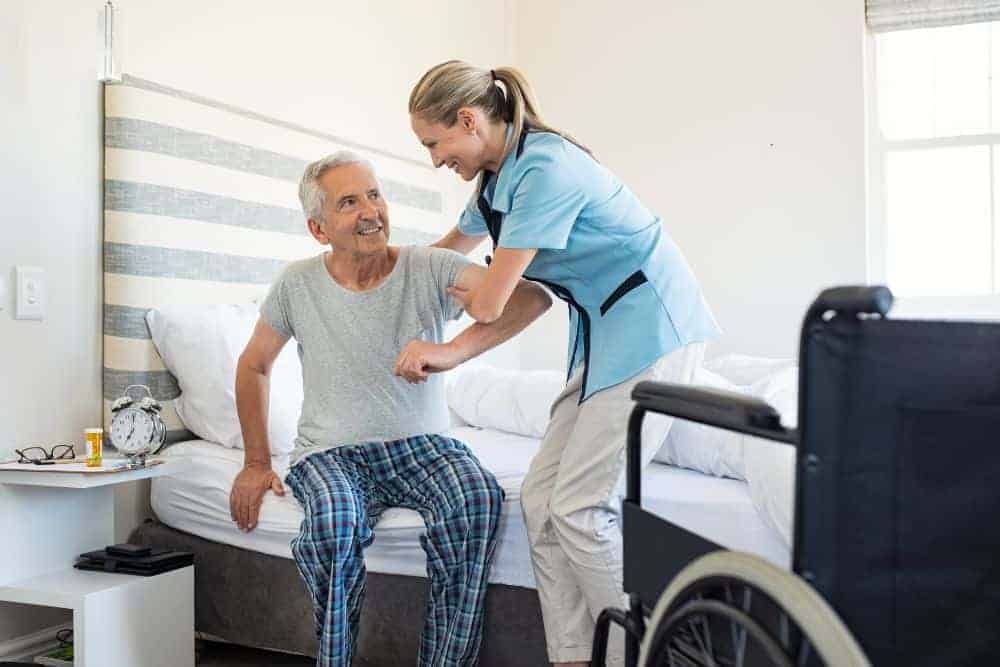
Ways mobility impacts independence:
- Difficulty getting in and out of bed, chairs, or the bathroom.
- A need for assistive devices like walkers or canes to support walking, which might make it harder to go out or participate in certain activities.
- Decreased ability to drive, which limits transportation options and can isolate seniors from their community.
Environmental Factors
The living environment plays a significant role in maintaining independence. A home that is not designed for aging adults can become a barrier to performing daily activities or even staying safe.
Modifications to the home and access to resources can help seniors live independently longer.
Environmental factors include:
- Home safety: Clutter, uneven floors, or lack of handrails in bathrooms can increase the risk of falls.
- Accessibility: Stairs, narrow hallways, and high shelves can limit movement within the home.
- Community resources: Proximity to healthcare providers, grocery stores, and social activities can affect a senior’s ability to live independently.
Social Support Systems
The presence of a strong social network is essential for maintaining independence. Family members, friends, and neighbors who offer support can help seniors live independently by providing emotional encouragement, running errands, or even helping with household chores.
How social support affects independence:
- Having regular contact with loved ones can help reduce feelings of isolation and improve mental well-being.
- Social networks can provide practical help with tasks like transportation or cooking.
- Caregivers or family members can step in to assist with medical needs or make sure seniors are managing their health properly.
Financial Resources
Financial stability plays a crucial role in maintaining independence as it impacts the ability to afford healthcare, home modifications, assistive devices, and other services that can help seniors remain independent.
Financial challenges that affect independence:
- Limited income: Seniors living on a fixed income may find it difficult to pay for necessary medical care or home improvements to increase accessibility.
- Healthcare costs: The cost of prescriptions, doctor visits, and physical therapy can be burdensome for seniors, making it harder for them to manage health conditions on their own.
- Long-term care options: Some seniors may not have the financial resources for residential care or in-home care services, which could be necessary for maintaining their independence.
Chronic Pain or Fatigue
Ongoing physical pain or fatigue can significantly impact an older adult’s ability to complete everyday tasks. Pain from arthritis, back issues, or other chronic conditions can make it difficult to perform simple activities, such as dressing, cleaning, or cooking.
How chronic pain or fatigue affects independence:
- It can lead to exhaustion and a lack of energy to perform tasks, making it harder to stay engaged in daily life.
- Chronic pain may cause seniors to limit their movements, leading to decreased physical activity and, in turn, further health problems.
10 Ways to Promote Independence for Older Adults
Encouraging independence in older adults can have a huge impact on their quality of life, emotional well-being, and overall health.
While the goal is to help seniors maintain as much independence as possible, caregivers and family members can play a vital role in offering the right support and encouragement.
Below are ten ways you can promote independence for your elderly loved one.
1. Encourage Regular Exercise
Exercise is one of the most powerful tools for helping older adults retain their independence. Regular physical activity helps maintain muscle strength, improves balance, and promotes cardiovascular health—all essential for keeping your beloved parent or relative mobile and independent.
Ways to encourage exercise:
- Gentle Activities: Help seniors incorporate low-impact activities such as walking, swimming, or tai chi. These exercises improve mobility without putting stress on joints.
- Strength Training: Light weightlifting or resistance bands can be used to help seniors maintain muscle mass, which naturally decreases with age.
- Balance Exercises: Simple exercises like standing on one foot or walking heel-to-toe can improve coordination and reduce the risk of falls.
- Outdoor Walks: Taking a walk in nature can boost mental health as well, giving seniors a sense of purpose and connection with the outside world.
Encouraging seniors to engage in these types of exercises consistently can help them stay more active and capable of performing daily activities with less assistance.
2. Install Safety Modifications in the Home
A safe living environment is essential for maintaining independence. Many falls and accidents can be prevented by making simple home modifications to improve accessibility and reduce hazards.
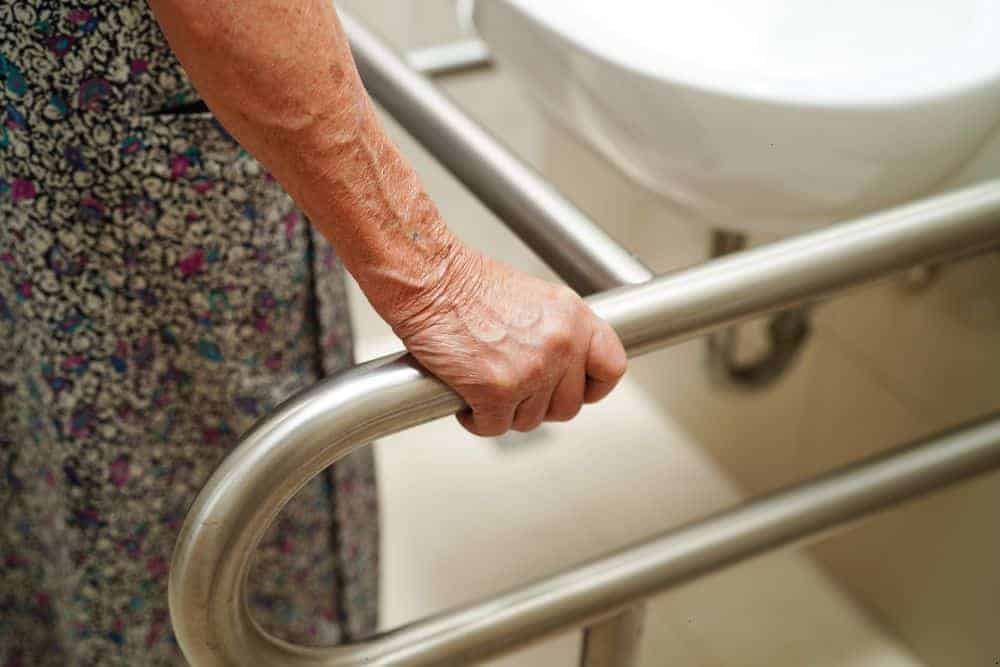
Key home modifications include:
- Grab Bars & Rails: Install grab bars in the bathroom (near the toilet and in the shower) to help seniors maintain their balance while getting in and out.
- Non-Slip Flooring: Use non-slip mats or rugs in areas like the bathroom, kitchen, and hallway to prevent slips.
- Clear Pathways: Remove any obstacles or clutter that might cause seniors to trip, especially in high-traffic areas like hallways and living rooms.
- Improved Lighting: Install brighter lights in hallways and stairways to ensure better visibility during the night.
- Raised Furniture: Adjust the height of furniture like beds, chairs, and toilets to make it easier for seniors to stand or sit down without assistance.
3. Promote Healthy Nutrition
Good nutrition is crucial for seniors to maintain energy, strength, and overall health. A well-balanced diet can help prevent a variety of age-related health issues and support your loved one’s ability to live independently.
Ways to promote healthy eating:
- Balanced Meals: Encourage meals that are rich in fruits, vegetables, lean proteins, whole grains, and healthy fats. These provide essential nutrients like vitamins, calcium, and omega-3 fatty acids, which support brain, bone, and heart health.
- Hydration: Make sure seniors are drinking enough water, as dehydration can cause fatigue, confusion, and dizziness.
- Easy-to-Prepare Meals: If cooking is difficult for seniors, help them prepare easy, nutritious meals or explore meal delivery services.
- Supplements: Some seniors may need supplements like vitamin D or calcium, especially if they have trouble absorbing nutrients from food.

Encouraging seniors to stay on top of their nutrition can help maintain their physical and mental well-being, allowing them to keep up with daily activities.
4. Assist with Medication Management
As seniors age, they often have multiple medications to manage. Proper medication management is crucial to prevent errors that could affect their health and independence.
Medication tips:
- Organizers: Use pill organizers or medication boxes that can separate pills by the day or time to reduce confusion.
- Reminders: Set up medication reminders through phone apps, alarms, or voice-activated assistants to ensure seniors take their medications on time.
- Regular Reviews: Schedule regular reviews of medications with a healthcare provider to assess for any changes in prescriptions or dosages.
- Medication Charts: Keep a medication chart that includes the name, dosage, and time to ensure the right medications are taken.
5. Provide Transportation Assistance
For many seniors, the loss of the ability to drive can be a major blow to their independence. However, there are plenty of alternative transportation options available to ensure they can get around without feeling isolated.
Transportation alternatives include:
- Public Transportation: Many cities offer discounted public transportation for seniors, which can help them travel to appointments or social gatherings.
- Ride-Share Services: Apps like Uber or Lyft often offer senior-friendly options, and caregivers can set up accounts for seniors to ensure they can get around easily.
- Community Transportation: Many senior centers or local volunteer organizations provide free or low-cost rides to medical appointments or other essential services.
- Family Support: Family members can also help by offering transportation to local events, grocery shopping, or doctor’s visits.
6. Support Social Connections
Social interaction is vital for a senior’s emotional health and helps to combat loneliness and depression. Staying socially engaged improves mental sharpness and can make seniors feel more in control of their lives.

Ways to support social connections include:
- Encourage Phone Calls or Video Chats: Help seniors stay connected with loved ones through regular phone calls or video chats.
- Group Activities: Encourage participation in community activities such as book clubs, bingo, or gardening clubs.
- Volunteering: Physically able Seniors can volunteer, giving them a sense of purpose and a way to meet new people.
- Social Media: Introduce seniors to social media platforms to connect with friends or family who live far away.
Socializing helps seniors feel valued and reduces feelings of isolation, making it easier for them to continue living independently.
7. Promote Cognitive Health
Mental sharpness is as important as physical health when it comes to maintaining independence. Keeping the brain active can help seniors preserve memory, attention, and decision-making skills.
Activities to promote cognitive health include:
- Brain Exercises: Encourage seniors to engage in puzzles, crosswords, or memory games. These activities stimulate mental function and can help slow cognitive decline.
- Lifelong Learning: Encourage seniors to continue learning by taking up new hobbies, attending classes, or exploring new interests.
- Staying Engaged: Involve seniors in conversations about current events or problem-solving tasks to keep their minds sharp.
8. Foster a Sense of Purpose
Having a sense of purpose is key to emotional well-being, and seniors who feel they are contributing to something meaningful are more likely to maintain their independence. Purpose gives them motivation to stay active and engaged.
Ways to foster purpose:
- Encourage Hobbies: Support seniors in continuing or developing hobbies that bring them joy, such as knitting, painting, or writing.
- Volunteering: Seniors can often find fulfillment in giving back, whether by mentoring younger generations or volunteering at local nonprofits.
- Mentorship: If they are able, older adults can help guide younger family members or peers, which reinforces their values and sense of accomplishment.
9. Support Personal Care
Personal care tasks, such as bathing, grooming, and dressing, are essential for maintaining dignity and self-esteem. Encouraging seniors to care for themselves can help them feel more independent.
Personal care tips include:
- Create a Routine: Help seniors develop a personal care routine that they can easily follow, including regular showers, haircuts, and dressing.
- Assist with Hygiene: Offer help when necessary, but encourage seniors to complete tasks like brushing teeth, grooming, and getting dressed with minimal assistance.
- Modify the Bathroom: Use adaptive tools like shower chairs, raised toilets, or handheld showers to make personal care easier.
10. Encourage Involvement in Decision-Making
A vital part of independence is having control over one’s decisions. Seniors should be actively involved in making decisions about their daily routines, healthcare, and living arrangements.
Ways to involve seniors in decision-making include:
- Healthcare Decisions: Encourage seniors to attend doctor’s appointments and voice their preferences regarding their health care.
- Daily Routines: Let seniors help decide how they organize their days, from meal choices to leisure activities.
- Living Arrangements: Be open to discussing options for living arrangements and care plans, ensuring that seniors’ preferences are considered.
Professional Services That Promote Independence
Professional caregivers can strike the perfect balance between offering support and fostering independence. These experts are trained to provide the right level of care, ensuring that seniors receive help when needed, without compromising their ability to live autonomously.
Here’s how various professional services can foster independence:
Assisted Living
Assisted living facilities like Amy’s Eden Homes offer a unique blend of housing and care services designed to support seniors who need help with daily activities but still wish to live as independently as possible.
These facilities provide a wide range of services, including assistance with bathing, dressing, grooming, medication management, and meal preparation.
Professional staff members are available to assist when needed.
In-home Care
In-home care services are one of the most popular choices for seniors who wish to age in place while receiving personalized care in the comfort of their homes.
Caregivers, typically through home care agencies, provide a wide range of services from companionship to help with daily tasks like cleaning, meal preparation, or transportation.
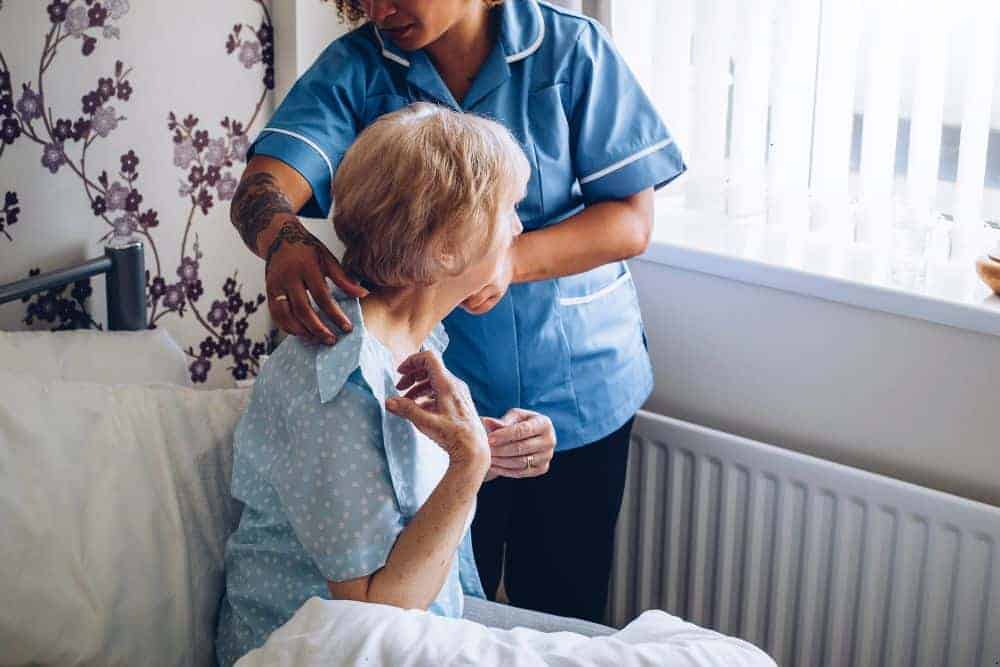
How it promotes independence:
- In-home caregivers work to maintain a senior’s dignity by offering assistance while encouraging them to complete tasks themselves.
- For example, a caregiver can assist with medication reminders but will allow the senior to administer their medication independently if they are capable.
- In-home care allows older adults to live in familiar surroundings, keeping them comfortable while professional caregivers ensure their safety and well-being.
Physical Therapy and Occupational Therapy
Physical and occupational therapists specialize in helping seniors improve or maintain their functional independence.
Physical therapy (PT):
- PT involves exercises and activities designed to improve strength, flexibility, and balance. This is particularly important for preventing falls, which can lead to serious injuries and affect independence.
- Therapists work with seniors to improve their ability to walk, climb stairs, and perform daily activities like dressing and cooking.
Occupational therapy (OT):
- OT focuses on helping seniors regain or maintain their ability to perform everyday tasks, such as bathing, dressing, or cooking, with the use of adaptive devices.
- Occupational therapists also assess home environments and recommend changes to make the home safer and more accessible, reducing the risk of accidents and injuries.
Home Health Care Providers
Home health providers offer more advanced medical support for seniors who need regular medical care, including nursing services. This can include wound care, post-surgery care, managing chronic illnesses, and administering medication.
Home health care provides medical support while allowing seniors to remain in their own homes, reducing the need for hospital stays or residential care.
Memory Care Services for Seniors with Dementia
Dementia can have a significant impact on a senior’s ability to live independently. Memory care services are designed to assist those with Alzheimer’s disease or other forms of dementia, providing specialized care to help maintain cognitive function and independence for as long as possible.
These services can include assistance with medication management, monitoring cognitive abilities, and offering specialized activities to promote memory retention and mental stimulation.
The goal of memory care is not just to provide care but to encourage seniors to participate in activities that help them feel in control of their lives, even as they navigate cognitive challenges.
Final Thoughts: Independence as a Journey, Not a Destination
Helping older adults maintain their independence is an ongoing process that requires patience, creativity, and support. Whether through adaptive tools, professional caregiving services, or simple encouragement, every effort counts.
At Amy’s Eden Senior Care, we specialize in personalized services designed to empower seniors and help them continue to live independently. With our exceptional caregiving services balancing support with autonomy, we help your loved one continue to thrive in their golden years.
Contact us today to learn how we can support your loved one’s journey toward independence.




